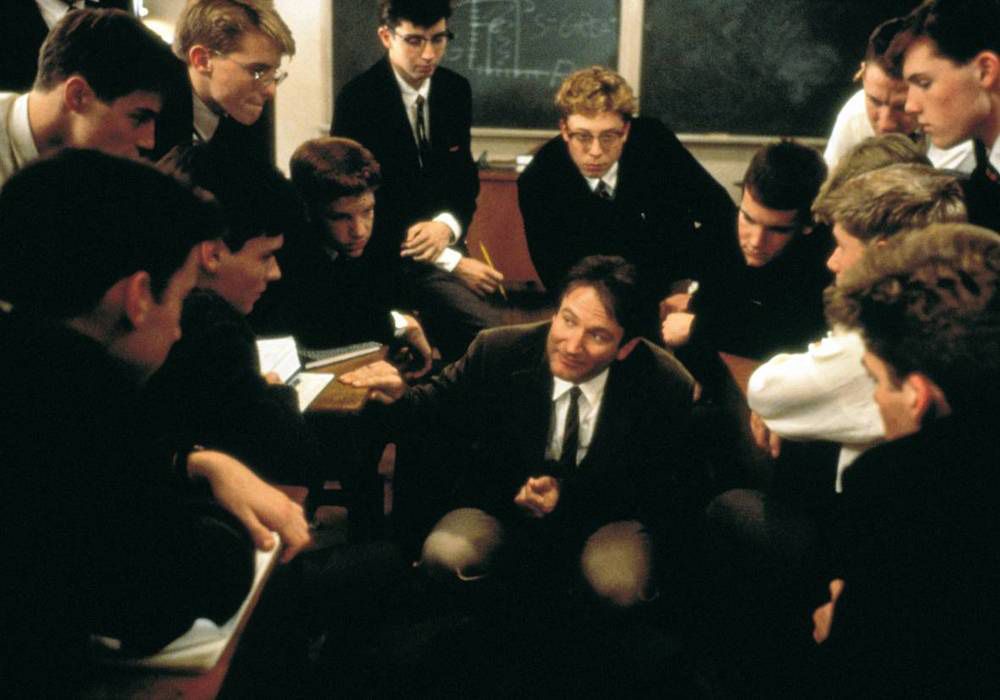
I recently completed my final semester of college, which, among other things, granted me a newfound, long overdue appreciation for old American cinema. I took a course called “Classical Hollywood Narrative: 1920-1960,” and it slowly but surely became my favorite out of all my four years, despite having nothing to do with my major. I enjoyed going to every screening and witnessing stories unfold on the big screen each week. The assignments were far from burdensome; they gave me the freedom to write and write about films and how they personally impacted me.
In class, we watched two films that particularly stood out to me: Alfred Hitchcock’s Shadow of a Doubt (1943) and William Wyler’s The Best Years of Our Lives (1946). Besides both stories’ shared commentary on American domesticity, they are linked by another common thread: actress Teresa Wright. In both films, Wright portrays anchoring characters. The protagonist in one and a supporting figure in the other, she is a quietly powerful force who utterly captivated me in that screening room both nights. In Shadow of a Doubt, Wright’s character of young Charlie emerges as the de facto head of the family — a heroine who understands that the practical way forward after facing evil is to preserve the idyllic nature of her household from before. In The Best Years of Our Lives, Wright plays Peggy Stephenson, the daughter of a WWII veteran coming home. Peggy is the emotional lynchpin of the film, and her relationships with her father and another young veteran are pure, genuine, and heartwarming. We gravitate towards her ability to nurture.
Inspired after the course ended, I went on to watch a couple other Wright’s notable performances, including her debut in The Little Foxes (1941) opposite Bette Davis, followed by Mrs. Miniver (1942) — she was nominated both times for an Academy Award and won Best Supporting Actress in the latter. Wright was stellar as an initially naive teenager with hints of child-like mannerisms who comes into her own in The Little Foxes, ultimately having the last word at the end of the film. She gave an especially poignant performance as the new wife of a WWII RAF pilot in Mrs. Miniver, humbling the audience first with her wit and then with her unwavering loyalty and commitment to love. My bar was set high and yet these two performances still reached it with ease.
I found this quote about Wright that pretty much encapsulates my admiration for her:
What can her performances say to us now, though, a socially liberated and more cynical audience? Simply put, they can make sympathy astonishingly new. Wright expanded the body of virtue as acting terrain. Often, when others play virtuous people, we’re dying for the shattering blow to fall and make them interesting. This actress changed that, with something it would not be excessive to call a genius for decency.
Stephen Talty, 1990
Moreover, Wright acted with conviction in her own life. She purposely avoided the over-glamorization and unnecessary sexualization so common in Hollywood at the time, writing out a clause in her contract that essentially forbade any attempts at her promotional objectification by studios and producers. She made career decisions of her own accord, thus always maintaining her agency.
In a way, Teresa Wright reminds me a lot of the first actress I looked up to, Winona Ryder (specifically in Heathers). That short, bouncy, voluminous black hair and those amazing shoulder pads and blazers that completed her characters’ wardrobe, as well as that gentle, quiet but powerful conviction, that vulnerability paired with self confidence, and most of all, that intelligence and maturity well beyond her years whenever she was confronted with a dilemma. These are all traits that I wish I possessed and that I wish to hone as I continue down my own path in life.







